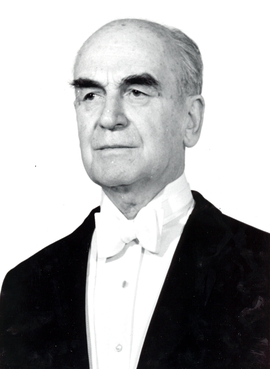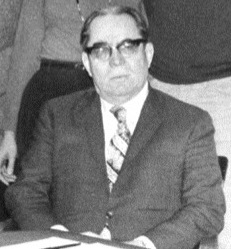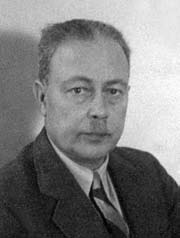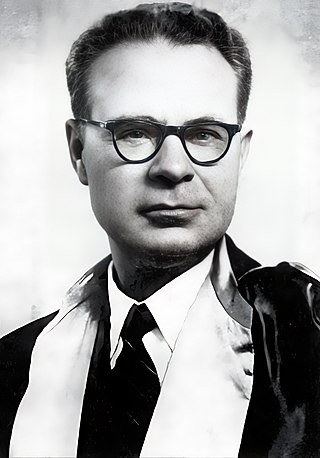Korkut Boratav (born 1935) is a Turkish Marxian economist.
Korkut Boratav (born 1935) is a Turkish Marxian economist.
Boratav was born in Konya. After his graduation from Ankara Gazi Highschool in 1955, he continued his studies at the Law faculty of Ankara University. In 1960 he became a lecturer and researcher at that university in Finance and Economics, by getting a postgraduate degree on Public Finances. He was granted a doctoral degree in 1964 with his thesis on “income distribution and public finance”.
He taught at Cambridge University between 1964 and 1966. In 1972 he was granted an assistant professorship at Ankara University for his thesis on "Progress of the Socialist Planned Economy ". In 1975, he worked as a specialist in the Health and Welfare Department of the United Nations Organisation, in Geneva, Switzerland.
In early 1980, he became a professor at Ankara University. But after three years, he was dismissed from his position after the "1402" law put into effect by the Military coup of 1980 in Turkey. He then taught at the University of Zimbabwe in Harare from 1984 to 1986 and thereafter returned to his previous position at Ankara University.
He has retired from teaching since 2002. [1] He was honored in 2005 by a conference about his work, organized by Ankara University and History Foundation of Turkey. He continues to publish as one of the most influential scholars of Turkish economy and economic history. Boratav is a member of the Advisory Board of Praksis, a Turkish journal of social sciences. He is the son of renowned Turkish folklorist Pertev Naili Boratav.

Mustafa İsmet İnönü was a Turkish army officer and statesman who served as the second president of Turkey from 11 November 1938, to 22 May 1950, and as its prime minister three times: from 1923 to 1924, 1925 to 1937, and 1961 to 1965.

Mehmet Fuat Köprülü, also known as Köprülüzade Mehmed Fuad, was a highly influential Turkish sociologist, Turkologist, scholar, Minister of Foreign Affairs and Deputy Prime Minister of the Republic of Turkey. A descendant of the prominent Köprülü family, Fuat Köprülü was a key figure in the intersection of scholarship and politics in early 20th century Turkey.

Fahri Sabit Korutürk was a Turkish admiral, diplomat and politician who was the 6th president of Turkey from 1973 to 1980. Before his presidency, he served as the 3rd commander of the Turkish Naval Forces from 1957 to 1960. He was also a member of the Senate of the Republic from 1968 to 1973 and again in 1980. Prior to his senatorship, he served as Turkey's ambassador to the Soviet Union from 1960 to 1964.

Mahmut Celâlettin "Celâl" Bayar was a Turkish economist and politician who was the third president of Turkey from 1950 to 1960; previously he was the prime minister of Turkey from 1937 to 1939.

Mustafa Kemal Atatürk, also known as Mustafa Kemal Pasha until 1921, and Ghazi Mustafa Kemal from 1921 until the Surname Law of 1934, was a Turkish field marshal, revolutionary statesman, author, and the founding father of the Republic of Turkey, serving as its first president from 1923 until his death in 1938. He undertook sweeping progressive reforms, which modernized Turkey into a secular, industrializing nation. Ideologically a secularist and nationalist, his policies and socio-political theories became known as Kemalism (Atatürkism).
Ahmet Vehbi Koç was a Turkish billionaire, businessman, entrepreneur and philanthropist who founded the Koç Group, one of Turkey’s largest groups of companies. During his lifetime, he came to be one of Turkey's wealthiest citizens. He was also a well-known philanthropist with interests in health, education and the arts.

Halil İnalcık was a Turkish historian. His highly influential research centered on social and economic approaches to the Ottoman Empire. His academic career started at Ankara University, where he completed his PhD and worked between 1940 and 1972. Between 1972 and 1986 he taught Ottoman history at the University of Chicago. From 1994 on he taught at Bilkent University, where he founded the history department. He was a founding member of the Eurasian Academy.

Hüseyin Mükerrem Hiç was a Turkish professor of economics and political economy at Istanbul University, Istanbul, Turkey, with former posts at Harvard University, Princeton University and Columbia University. He also served as a member of Grand National Assembly of Turkey between 1983 and 1987.
Yalçın Küçük is a Turkish socialist writer, economist, historian and media pundit, recognized for his historical studies on the late-Ottoman and Republican periods in the history of Turkey and Soviet economic development from a Marxist perspective and also his interest in crypto-Judaism in Turkey (Sabbateanism) and criticism of the Justice and Development Party.

Mustafa Kemal Kurdaş was a Turkish economist who served as Turkish Minister of Finance, the IMF’s adviser to Latin American governments, president of the Middle East Technical University and deputy head of the Turkish Treasury.
Zeyyat Hatiboğlu was a Turkish professor of economics and business administration at Istanbul Technical University, Istanbul, Turkey. He also served on the board of trustees of Doğuş University.

Falih Rıfkı Atay was a Turkish journalist, writer and politician between 1923 and 1950.

Mahmut Esat Bozkurt was a Turkish jurist, politician, government minister and academic. His birth name was Mahmut Esat. But after the adaptation of the Turkish Surname Law in 1934, he chose the surname Bozkurt in remembrance of the Grey Wolf, a symbol for Turkdom. The surname also refers to the Turkish steamer S.S. Bozkurt in the Lotus case. He was in the intellectual environment of the Turkish Hearths for almost two decades.

Hikmet Bayur was a Turkish politician. He was the grandson of Kâmil Pasha, one of the Grand Viziers of the Ottoman Empire.
İktisat Bankası T.A.Ş. was a former Turkish bank. Founded as Denizli İktisat Bankası in 1927, it was transformed from a local bank to a nationwide operating deposit bank in 1971. Renamed in 1980, it was closed down in 2001 due to financial problems.

Abdülbaki Gölpınarlı (1900—1982) was a Turkish literary historian of Azerbaijani descent, known for his works on Sufism, Divan literature and Iranian literature. He was a translator and educator, "an outstanding interpreter of Sufism, especially the Mawlaviyya and Bektashiyya schools", as well as "one of the greatest scholars of Turkish Sufism".

Tevfik Güngör Uras was a Turkish economist, journalist, academic and author. He wrote more than ten thousand economic articles in various newspapers. In general, he tried to explain the economy simply to his readers. To accomplish this goal, he explained simple economic issues in daily life by creating the imaginary characters of "Aunt Ayşe" and "Uncle Ali Rıza" in some of his writings.
National economy is the economic plan, essentially kleptocratic, envisioned by Ziya Gökalp and carried out by successive Ottoman and Turkish governments, which involved the systematic dispossession of native Christian upper-classes and their replacement by Muslim Turks, in addition to large-scale confiscation and redistribution of Christian-owned property. Türk Yurdu announced 1915 as the starting year of the national economy. To Emil Ludwig, Talaat Pasha mentioned that the loss of the Armenian workforce would damage the economy for a short while, but that Turks would step in their positions and replace the Armenians soon.

Reşit Rahmeti Arat was a Turkish philologist, professor, writer and publisher of Tatar descent. He is considered to be the founder of philology in Turkey and a specialist of Old Uyghur language.
Yurt ve Dünya was a sociological and political magazine which was headquartered first in Ankara and then in Istanbul, Turkey. It was first published in the period between 1941 and 1944 and then between 1977 and 1980. It is known for its well-known editors and contributors, including Sabahattin Ali, Niyazi Berkes, Behice Boran and Pertev Naili Boratav.